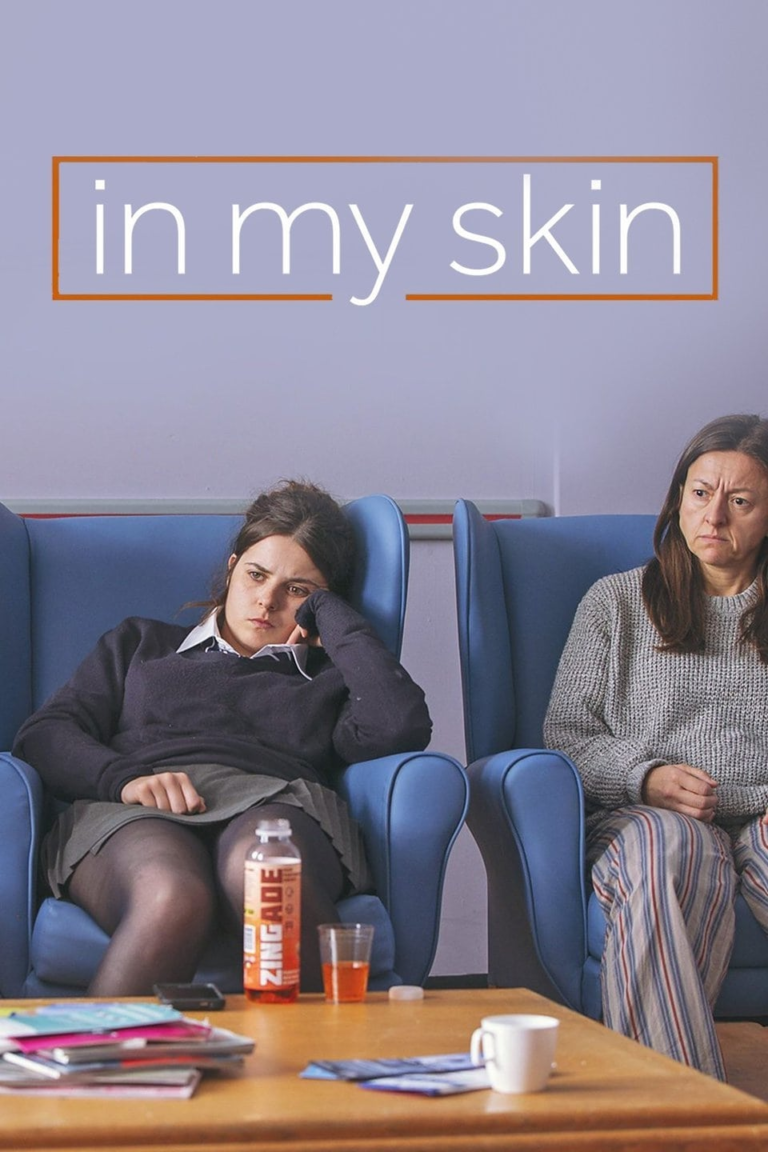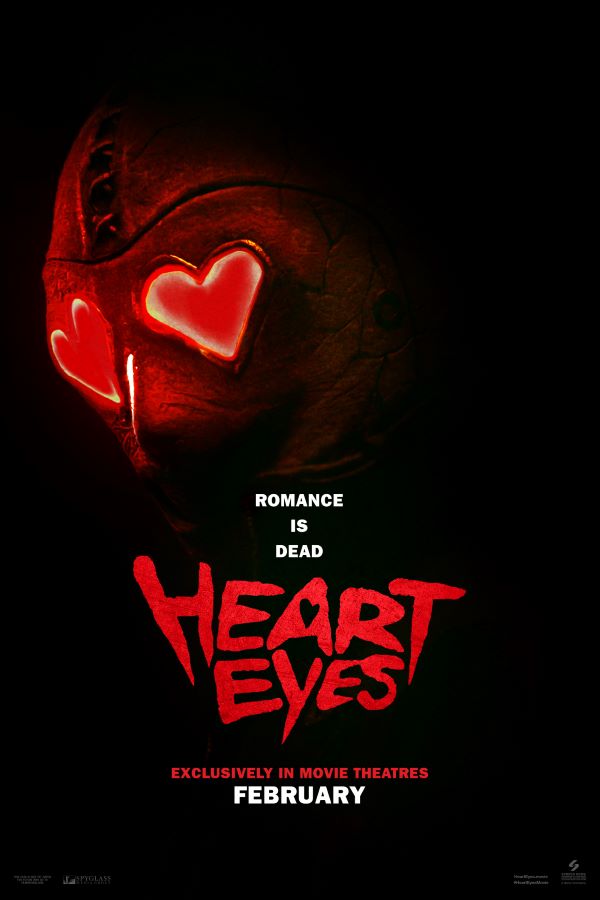Chloe Christian Review

Take a deep breath before diving into Chloe, a series that isn’t just another binge-worthy thriller. It’s something far more unsettling. Picture a mirror reflecting back not just who you are, but who you desperately wish you weren’t. And there’s no turning away from it. The series makes you sit with the uncomfortable thought of being a bystander to your own identity crisis, with social media serving as both judge and jury.
At its core, Chloe is a carefully crafted psychological mystery, cloaked in the familiar tropes of a crime drama but delivering so much more than a whodunit. It’s a show that sneaks up on you, starting innocently enough with the seemingly mundane life of Becky—average, overlooked, drab. You know the type. But when Becky’s social media obsession with the picture-perfect life of an old acquaintance, Chloe, takes a turn after Chloe’s sudden death, you’re thrust into a tense game of truth versus facade. This isn’t your typical scammer story about ambition or greed, and Becky isn’t a charismatic antihero. Instead, we’re left grappling with something murkier: the question of what happens when someone’s search for purpose and validation morphs into a compulsive need to live a life that isn’t their own.
A Mirror to Our Digital Obsessions
In a world that increasingly revolves around the curated personas we display on social media, Chloe could not be more relevant. It’s not a show that preaches about the dangers of online life; rather, it presents a brutally honest portrayal of how the subtle disconnect between our real and virtual selves can create cracks in our identity—cracks that can quickly become deep, gaping chasms. If you’ve ever found yourself scrolling aimlessly through someone’s Instagram, thinking they’ve somehow managed to figure out a life that feels impossibly out of reach, then Becky’s story might hit a little too close to home.
Becky’s obsession with Chloe’s pristine online world feels all too familiar. She’s not envious or malicious—just curious, like a moth fluttering toward a flame. But as she steps into Chloe’s real life, slipping into her circles and adopting a false identity, you can’t help but feel the slow, creeping unease that comes from knowing she’s getting in over her head. The allure of pretending to be someone you’re not is powerful, but the price is steep.
What’s in a Lie?
We’ve all heard it before: Lies have a way of spiraling out of control. But Chloe makes you feel it. Each deception Becky weaves feels like a drop in a bucket that’s dangerously close to tipping over. Her lies aren’t just about fooling others; they’re about fooling herself. With each small falsehood, she steps further from reality and deeper into a dangerous fantasy—a version of herself that’s more beautiful, more confident, more loved than she believes she could ever be as plain old Becky.
And isn’t that what so many of us do in our own lives, whether consciously or not? Maybe we’re not adopting new identities or fabricating entire backstories, but we do something just as insidious: we tweak, adjust, filter. We present the best parts of ourselves online, smoothing over the messy, uncomfortable truths that might make us seem less impressive. Becky’s story is a cautionary tale that reveals the inevitable outcome of such a mindset. Her entire sense of self becomes fractured, fragmented by the weight of living a life that isn’t hers to live.
An Unnerving Journey into the Heart of Discontent
The show’s strength lies not in its plot twists or suspenseful moments (though there are plenty), but in its unflinching exploration of Becky’s loneliness and desperation. You can almost feel her yearning seeping through the screen—the desperate desire to be seen, to be valued, to matter. But Chloe doesn’t offer her an easy way out. As she digs deeper into Chloe’s life, posing as someone she’s not and worming her way into Chloe’s old social circle, you begin to see that this isn’t about uncovering some dark, hidden secret. It’s about understanding why Becky feels the need to do this in the first place.
And that’s what makes Chloe such a compelling watch. Unlike other scammer dramas like Inventing Anna or Dirty John, which often paint their protagonists as brazen, larger-than-life manipulators, Chloe roots its story in something far more tragic: the quiet, insidious nature of insecurity. Becky’s lies are not triumphant or thrilling. They’re heartbreaking, each one pulling her further from herself and deeper into a world that, no matter how hard she tries, will never truly be hers.
When Reality and Fantasy Collide
The series also takes a unique approach to unraveling the truth. Instead of leaning on dramatic reveals or shocking twists, Chloe lets the tension simmer. Becky’s unraveling isn’t explosive; it’s a slow, deliberate disintegration. By the time the truth comes to light, it’s almost beside the point. What matters isn’t what happened to Chloe—it’s what’s happening to Becky.
Each episode feels like peeling back another layer of a complex, delicate structure, exposing the raw nerves underneath. And while there’s a mystery at the heart of Chloe, the real intrigue lies in watching Becky come undone. There’s a humanity to her struggle, a recognition of how easy it is to lose yourself in a world that constantly tells you you’re not enough. You might not condone her actions, but you understand them. And that’s what makes Chloe such a powerful show: it forces you to confront the uncomfortable truth that, in Becky’s shoes, you might not be so different.
A Social Media Cautionary Tale
What’s perhaps most striking about Chloe is its nuanced portrayal of social media’s impact on our lives. It’s not just about the harm that can come from living in a digital bubble, but about the way that bubble can distort our sense of self. Becky’s obsession with Chloe’s Instagram feed is a reminder of the thin line between inspiration and fixation, between admiration and envy. We’ve all been there—scrolling through someone’s photos, comparing their highlight reel to our behind-the-scenes mess. But for Becky, that comparison becomes something darker.
As she builds her life around Chloe’s ghost, trying to mold herself into a reflection of someone who no longer exists, you begin to see the corrosive effect of social media in a whole new light. It’s not just about unrealistic beauty standards or the pressure to perform; it’s about the subtle, insidious way it can make us question our worth.
Where Does It Leave Us?
By the time the credits roll on the final episode, Chloe has taken you on a journey that’s both deeply personal and broadly resonant. It’s a show that forces you to reckon with the idea that truth, identity, and worth aren’t things that can be faked, no matter how carefully we craft our online personas. And as Christians, this message is particularly important. Becky’s struggle is a stark reminder that the only identity worth holding onto is the one rooted in Christ—the only identity that isn’t subject to the shifting sands of opinion, image, or deceit.
Final Thoughts: A Must-Watch with a Heavy Heart
For its compelling narrative, haunting performances, and brutally honest depiction of our modern-day struggles with identity and authenticity, Chloe earns a solid 8 out of 10. It’s not an easy watch, and it’s certainly not always a pleasant one. But it’s a show that stays with you, long after the screen goes dark, forcing you to take a hard look at your own reflection—and maybe, just maybe, put down the mask.



